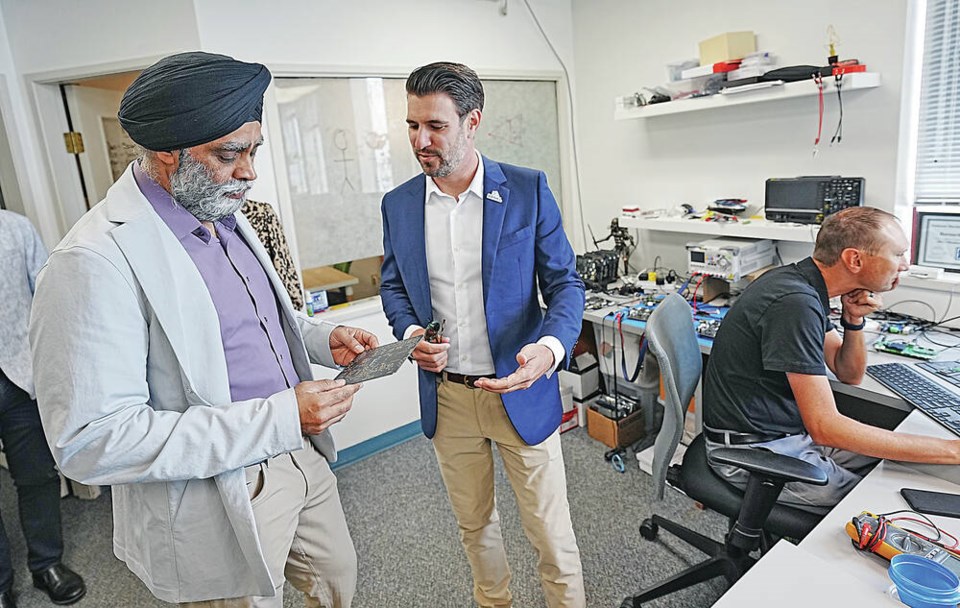An Oak Bay company is supplying the Canadian Coast Guard with technology to monitor abandoned and derelict boats across the country.
The Rapid Deploy devices developed by Barnacle Systems Inc. are being placed on problem vessels and allow the coast guard to remotely monitor and be notified if the vessel begins to sink or drag anchor or is affected by weather conditions or intruders.
The coast guard said real-time status updates and alerts allow for faster deployment of marine environmental and hazard response teams to high-priority areas.
“We feel so proud as a company knowing that our products are being used to help the environment,” said Barnacle Systems CEO Brandon Wright, who employs 14 staff and contractors out of its headquarters at Oak Bay Marina.
The coast guard has acquired 39 BRNKL units at a total cost of $513,000. Each unit costs $11,700 and includes cellular and satellite service plans for one year as well as float switches and solar panels. Remote training, supports and analysis will also be provided by Barnacle Systems.
The Rapid Deploy units weigh about 15 kilograms and are the size of a piece of airplane carry-on luggage.
Each contains GPS units and accelerometer/gyroscope units that monitor the list and pitch, and any sudden impacts, and can determine if a vessel is beginning to sink, or if it’s affected during a storm or from bouncing off the sea floor.
Float switches are also included to detect if water is present in a particular area and remote cameras capture images of the surrounding environment, intruders and different areas of the vessel.
A satellite antenna is used when the system has variable cellular connectivity, or when cellular becomes unavailable. The units run off solar panels.
Wright said the coast guard will determine where and when the units will be placed on abandoned boats.
He said with more than 2,700 abandoned, wrecked and hazardous vessels bobbing around Canadian waters — including 1,600 in British Columbia — the coast guard will prioritize which vessels need immediate attention.
“It’s an overwhelming number … and the average size of these boats is 65 feet long,” said Wright. “In a lot of cases, people just abandon them to avoid the cost of recycling them.”
The coast guard already had seven of Barnacle’s Rapid Deploy systems, and added the 39 units because the number of abandoned vessels has been increasing, said Wright.
An additional six units have been sold to Island First Nations, which will use them in their own territories, said Wright.
The federal government said about 500 boat-removal projects have been completed through funding from its Oceans Protection Plan since 2016.



